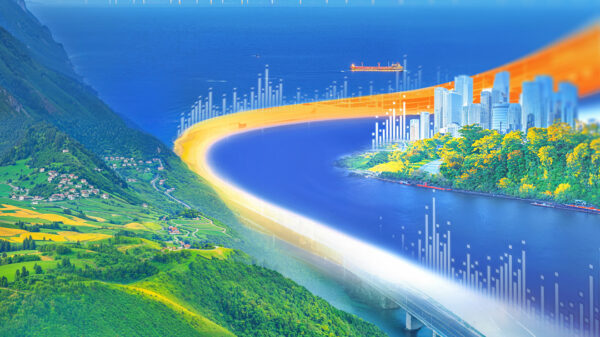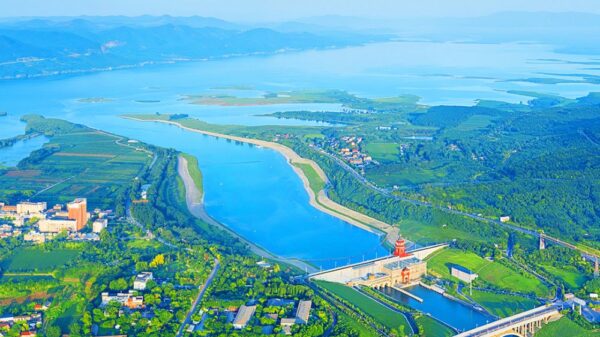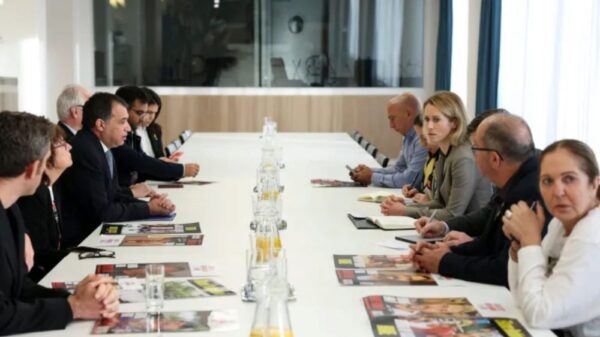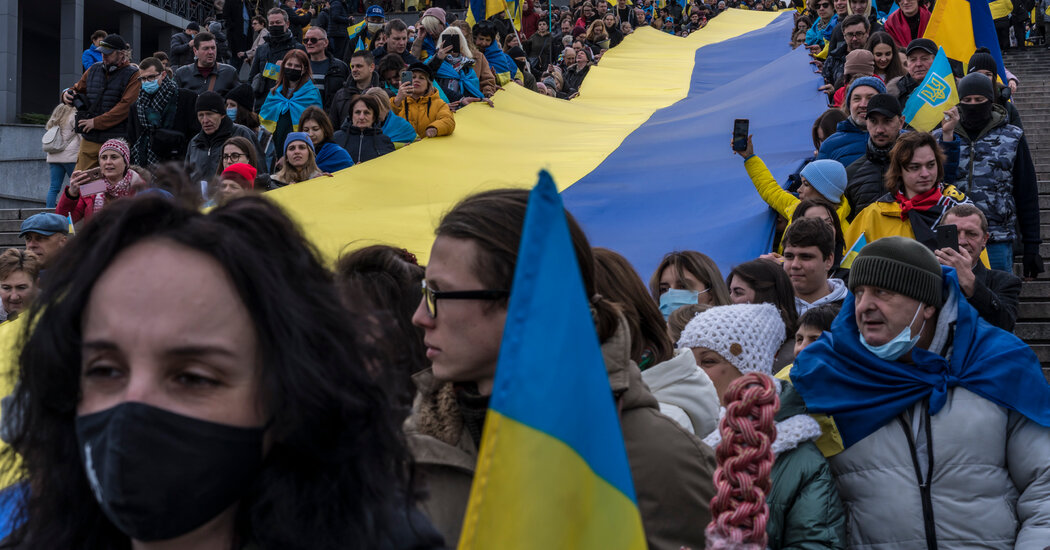In a speech, President Vladimir V. Putin bent Ukraine’s complex history into his own version that served as a justification for his cleaving off more of its territory.
KYIV, Ukraine — In his speech to the Russian nation on Monday, President Vladimir V. Putin buoyed his case for codifying the cleavage of two rebel territories from Ukraine by arguing that the very idea of Ukrainian statehood was a fiction.
With a conviction of an authoritarian unburdened by historical nuance, Mr. Putin declared Ukraine an invention of the Bolshevik revolutionary leader, Vladimir Lenin, who he said had mistakenly endowed Ukraine with a sense of statehood by allowing it autonomy within the newly created Soviet state.
“Modern Ukraine was entirely and fully created by Russia, more specifically the Bolshevik, communist Russia,” Mr. Putin said. “This process began practically immediately after the 1917 revolution, and moreover Lenin and his associates did it in the sloppiest way in relation to Russia — by dividing, tearing from her pieces of her own historical territory.”
As a misreading of history, it was extreme even by the standards of Mr. Putin, a former K.G.B. officer who has declared the Soviet Union’s collapse the greatest geopolitical catastrophe of the 20th century.
The historical reality of Ukraine is complicated, a thousand-year history of changing religions, borders and peoples. The capital, Kyiv, was established hundreds of years before Moscow, though both Russians and Ukrainians claim Kyiv as a birthplace of their modern cultures, religion and language.
The history and culture of Russia and Ukraine are indeed intertwined — they share the same Orthodox Christian religion, and their languages, customs and national cuisines are related.
But the happy brotherhood of nations that Mr. Putin likes to paint, with Ukraine fitted snuggly into the fabric of a greater Russia, is dubious. Parts of modern-day Ukraine did indeed reside for centuries within the Russian empire. But other parts fell under the jurisdiction of the Austro-Hungarian empire, or Poland or Lithuania.
“Putin’s argument today that Ukraine is historically subsumed by Russia is just not right,” said Cliff Kupchan, chairman of the Eurasia Group, a political risk consulting organization. While the themes of Mr. Putin’s speech were not new for the Russian leader, Mr. Kupchan said, “the breadth and vehemence with which he went after all things Ukrainian was remarkable.”
The newly created Soviet government under Lenin that drew so much of Mr. Putin’s scorn on Monday would eventually crush the nascent independent Ukrainian state. During the Soviet era, the Ukrainian language was banished from schools and its culture was permitted to exist only as a cartoonish caricature of dancing Cossacks in puffy pants.
Mr. Putin also argued on Monday that the myth of Ukraine was reinforced by the crumbling Soviet government of Mikhail Gorbachev, which allowed Ukraine to slip free of Moscow’s grasp. It was a weakened Moscow that “gave” Ukraine the right to become independent of the Soviet Union “without any terms and conditions.”
“This is just madness,” he said.
It was not Moscow that granted Ukraine’s independence in 1991, but the Ukrainian people, who voted resoundingly to leave the Soviet Union in a democratic referendum.
Now, with an estimated 190,000 Russian troops now surrounding Ukraine like a sickle, Mr. Putin’s declaration that Ukraine’s very existence as a sovereign state was the result of historical error threatened to send a shudder through all the lands once under Moscow’s dominion. It also elicited expressions of contempt from Ukrainians.
“For the past few decades, the West has been looking for fascism anywhere, but not where it was most,” said Maria Tomak, an activist involved in supporting people from Crimea, a Ukrainian territory Mr. Putin annexed in 2014. “Now it is so obvious that it burns the eyes. Maybe this will finally make the West start to sober up about Russia.”
It is not clear whether Mr. Putin believes his version of Ukrainian history or has simply concocted a cynical mythology to justify whatever action he plans next. But his contention that Ukraine exists solely within the context of Russian history and culture is one he has deployed at least as far back as 2008, when he attempted to convince George W. Bush, after the former president had expressed support for Ukraine’s NATO membership, of the country’s non-existence.
Last summer, Mr. Putin published a 5,300-word essay that expounded on many of the themes he highlighted in Monday’s speech, including the idea that nefarious Western nations had somehow corrupted Ukraine, leading it away from its rightful place within a greater Russian sphere through what he called a “forced change of identity.”
Few observers, though, believe that historical accuracy is of much importance to Mr. Putin as he sets forth justifications for whatever he has planned for Ukraine.
“We can be clear that Putin was not trying to engage in a historical debate about the intertwined histories of the Russian and Ukrainian peoples,’’ said Joshua A. Tucker, a political science professor at New York University and an expert on Russia. Instead, Professor Tucker said, the Russian leader was laying the groundwork for the argument “that Ukraine is not currently entitled to the sorts of rights that we associate with sovereign nations.” .
“It was a signal that Putin intends to argue that a military intervention in Ukraine would not be violating another country’s sovereignty,” he added.
Moscow had vowed to respect Ukraine’s sovereignty as a condition of Ukraine’s giving up its nuclear weapons after the Soviet collapse. But Mr. Putin, analysts said, has made clear that pledge is of little importance to him. In 2014, after protesters drove a Kremlin-backed government from power in Kyiv, he ordered his military to seize the Crimean Peninsula and then instigated a separatist war that resulted Ukraine’s de facto loss of two rebel territories in the east.
On Monday, Mr. Putin moved to formalize that separation by recognizing those territories, the Donetsk and Luhansk People’s Republics, as independent. Soon afterward, he ordered troops into the so-called Donetsk and Luhansk People’s Republics in Eastern Ukraine.
But Mr. Putin’s efforts to wrest Ukraine back into Russia’s orbit have, in many ways, had the opposite effect. In a country that was once ambivalent about NATO at best, or openly hostile at worst, polls show that a solid majority now favor membership in the American-led military alliance.
In Kyiv, where Ukrainians had been nervously awaiting Mr. Putin’s decision, the reaction to his speech was one of disgust and foreboding.
Kristina Berdynskykh, a prominent political journalist, gathered with colleagues at a bar called Amigos and sat around a phone watching Mr. Putin’s speech, by turns crying and cursing.
“It is hatred for all of Ukraine and revenge for the country’s movement toward the E.U. and NATO and democracy — albeit chaotic, with huge problems, slow reforms and corruption — but where people elect and change power in elections or revolutions,” Ms. Berdynskykh said. “The worst dream for an old lunatic is both scenarios: fair elections and revolutions.”
Michael Schwirtz reported from Odessa, Ukraine, Maria Varenikova from Kyiv and Rick Gladstone from New York.




























